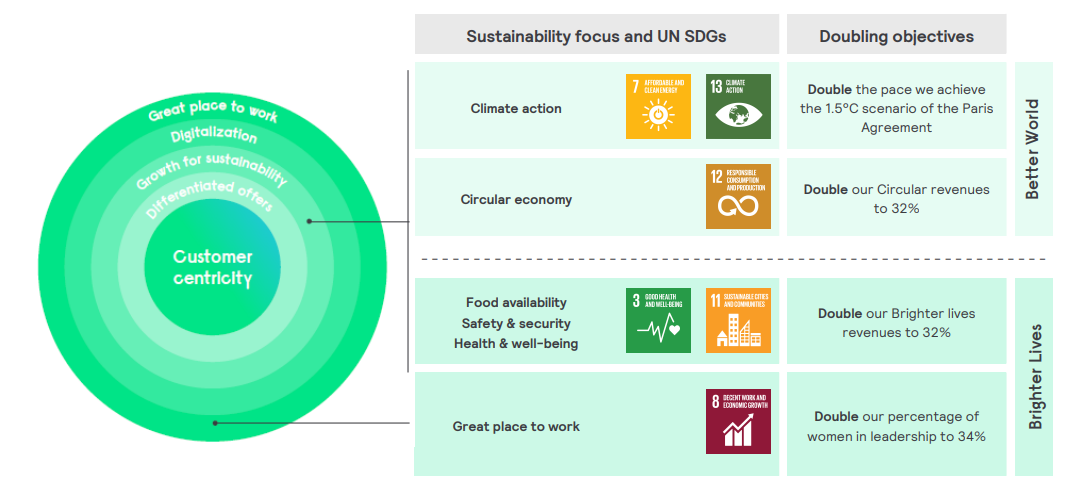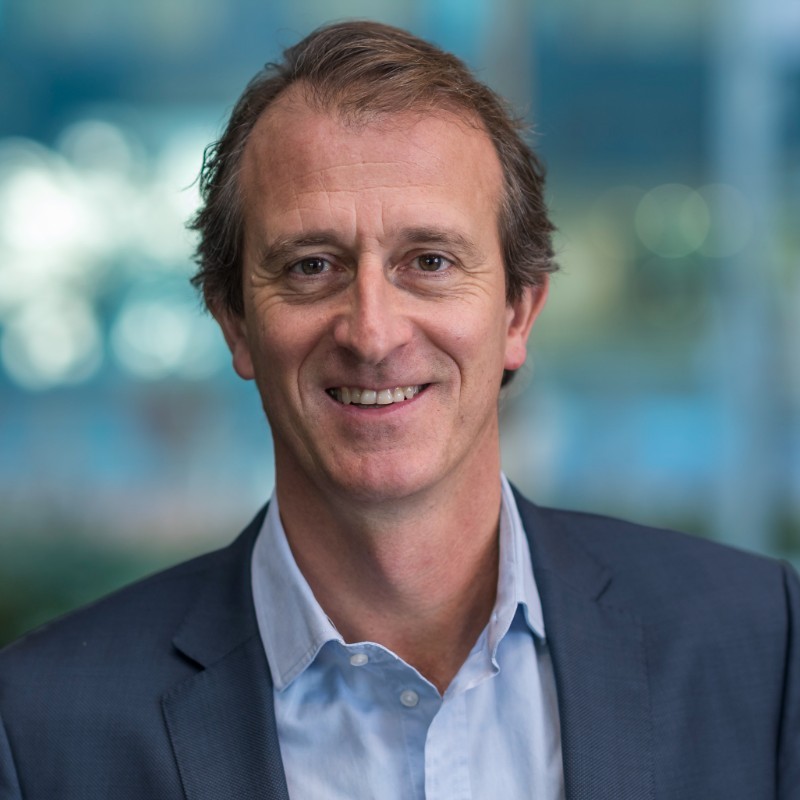Interview with Javier van Engelen, CFO at Signify: Changing role of the CFO

Javier van Engelen (CFO at Signify) and United Nations Global Compact
30-03-2023: CFOs are the stewards of corporate finance. By coming together, they can advance their collective understanding of why sustainability-linked investments are key to achieving the Sustainable Development Goals (SDGs), and leverage billions of dollars in annual corporate investments to support the sustainability transition.
UN Global Compact Network Netherlands spoke with Javier van Engelen, CFO at Signify, about the changing role of the CFO.
‘’If CFOs want to properly address the challenges in sustainable finance, we need to collaborate to lobby for the right measures.’’
Javier, what is your vision of sustainability and the role of business therein?
Sustainability is not something we can have a debate about. It needs to be everyone’s focus moving forwards. There are three major parties involved in the sustainable transition: consumers, businesses, and governments. All have a crucial role to play.
Companies are the drivers of innovation and are capable of informing both consumers and governments. Business is and will always be fueling innovation. For example, we went to the market with ultra-efficient LED lightbulbs that achieve 92% energy saving. If the private sector does not keep on innovating, our sustainable transition will stagnate.
When Signify innovates, technical knowledge of how a product contributes to the sustainability transition is developed within our company. We have a responsibility to inform our consumers and the governments of the contribution of our products.

What role does a CFO play in this? How does that express itself within Signify?
CFOs have a dual role in many businesses. We are part of a board of management and should act on that responsibility, but we also have the final responsibility for the financial management of the company. CFOs look at the risks for the company and subsequently derive strategies and ways to mitigate these risks. Centering sustainability in our operations means also centering it within our risk assessment and including it in our annual plans and long-term strategies.
CFOs are also responsible for aligning (non-)financial targets and considering different investment choices. We must make decisions on where the business puts its money, whether in the sphere of innovation, production, or partnerships.

Where do you see the biggest challenges in the field of Sustainable Finance for the coming years?
I think the most important challenges within Sustainable Finance entail drawing and aligning a strong sustainability impact thesis, creating the right incentives in the market, and structuring communication and reporting. When looking at the impact thesis, I think the challenge is mainly centered around a culture change. Both supervisory boards, shareholders, and the investor base should be 100% convinced about the sustainability strategy. This requires the leadership team, and especially the CFO to be visionary and capable of sometimes decoupling the financial component from these sustainability challenges. When looking at creating the right reward systems and incentives, the challenge is especially big as I have not yet found proof that the market rewards sustainability through financial instruments which give an actual benefit. There are a lot of ESG-convertible bonds, but they don’t give a clear benefit.
Focusing on communication and reporting, I think there is a huge challenge due to the lack of common standards and consistency. Creating a level-playing field for a listed company like Signify that needs to compete with non-European businesses is key.
Looking back on these challenges, I think the CFO Principles are a crucial instrument to tackle them. If all businesses and their CFOs commit to the Principles, drafting an impact thesis will become more straightforward, thought leadership on the creation of Corporate Finance reward systems will be advanced, and reporting and communication will become more transparent.
What has moved you to sign the CFO Principles for the SDGs?
As of now, CFOs are often still viewed as a bottleneck. The classical view regarding the CFO is that if the numbers cannot be justified, business cases aren’t viable. Current sustainability issues go way beyond this. CFOs need to be bold, daring, and future-oriented and that’s why I signed the CFO principles for the SDGs. Also, I believe that by collaborating we can swiftly advance on the previously discussed challenges, such as creating structural reward systems and a level playing field in communication and reporting. We should aim at creating a CFO 2.0 or CFO Green. A CFO with fiducial responsibility but an equal responsibility of focusing on directing investments towards sustainable innovations.
Looking at Signify, I work here because I fundamentally believe in what we are doing here. We’re maximizing the capacity and potential of light. We create brighter lives and move towards a better world. That inspired me because it brings technology together with what the planet needs. We innovate so we can move forward, whether it be improving crops with our solutions or decreasing crime rates in busy parks. These innovations are at least partially fueled by Corporate Finance. I believe there is a future where financial officers have a huge role to play, and the CFO Coalition for the SDGs can be a great contribution to this.
Could you explain the way Signify redirects investments to realizing the SDGs?
To explain this, I will elaborate on our Brighter Lives, Better World Program. The purpose of this program is to unlock the extraordinary potential of light. The program is characterized by ‘doubling the impact’. We have four doubling initiatives. The first one entails climate action and CO2 footprint. We want to go at double the speed of the Paris Accord. We do this by focusing on a lot of internal initiatives but now also by focusing on scope three, so by critically analyzing our suppliers.

The second initiative entails circularity. We focus on a modular build where we can replace only certain elements instead of an entire product. 3D printing plays a crucial role in this. We want to increase this from 16% to 32% in all our products. Again, doubling.
The third initiative focuses on food availability, safety & security, and health & well-being. All our initiatives in this scope focus on the positive influence of light on the livelihood of people. Think of projects like connected lighting in parks to decrease crime rates, or increase the mental health of people by mimicking outside lighting in offices. We call this last project Nature Connect. We want to bring the revenues from these initiatives where light can positively influence people from 16% to 32%.
The fourth initiative is called A Great Place To Work. Our focus here is on gender and age diversity. We aim to bring women in leadership positions from 17% to 34% by 2025.
As of now, Signify is the only Dutch company to have signed the CFO Principles. Why is it important that other businesses follow Signify’s initiative and sign the principles?
I see the Netherlands as a progressive country that takes the lead and is home to many frontrunner companies. There’s the potential for so much innovation. However, if we want to properly address the sustainable finance challenges I laid out before, getting Dutch businesses to work together is crucial. Therefore, I urge companies to follow Signify’s example and sign the CFO Principles of the United Nations Global Compact.

Javier van Engelen
Chief Financial Officer (CFO) and Member of the Board
of Management
Javier van Engelen has joined Signify as Chief Financial
Officer (CFO) in June 2020 and is a Member of the Board of Management since October 2020. Before Signify, he has held financial leadership positions at international FMCG, retail and pharmaceutical companies in listed, family owned and private equity environments. He most recently held the position of CFO for Grupo Telepizza, a EUR 1.2 billion food operator, ultimately leading the process to take the company private in 2019.
Prior to this, he was CFO of Jerónimo Martins, a EUR 15
billion listed food retailing company with over 90,000
employees. Javier also has a solid manufacturing and M&A background, stemming from the start of his career at Procter & Gamble, and subsequent CFO roles at AstraZeneca and Triumph
International.
A Belgian and Portuguese national, Javier holds a master’s degree in Economics from the Antwerp
International Business School in Belgium.
